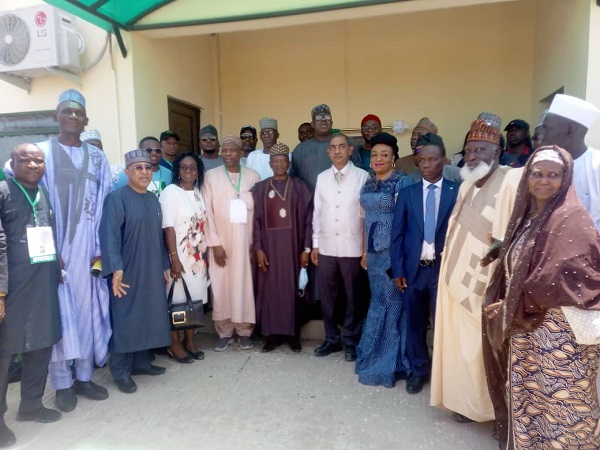
President Muhammadu Buhari has inaugurated a large-scale integrated rice mill in the Kwali Area Council of Abuja, aiming to boost revenue generation in the country.
The Sheda Integrated Rice Mill is one of 10 mills initiated under the Buhari administration’s plan to expand domestic rice production, enhance food security and achieve self-sufficiency in Nigeria.
Representing President Buhari, the Minister of Agriculture and Rural Development, Dr. Mohammed Abubakar emphasised that the government has consistently promoted and supported agricultural development through programs such as the Anchor Borrower Programme, the Fertiliser Initiative, Grain Aggregation Centres and the Special Agro-industrial Processing Zone Programme. These initiatives align with the government’s nine priorities, particularly the component focused on food security. The agricultural development strategy has successfully led to increased output in critical arable and cash crops.
Buhari stated, “This achievement clearly demonstrates our commitment to address critical infrastructure projects while adhering to the ideals of the Change Agenda, ensuring prudence in the management of public resources and value for money, considering the substantial investments made in this project”.
He highlighted the significant increase in domestic rice production as a result of incentives provided to farmers and processors, emphasising the need to leverage Nigeria’s potential, produce what is consumed locally, and support locally made products. Buhari urged stakeholders and investors to capitalise on available incentives, engage in agribusiness, and contribute to food production in the country.
Speaking to journalists, Minister Abubakar emphasised that the rice mills would contribute to food security. Nigeria has become the leading rice producer in Africa and the fourth largest in the world. The Sheda Rice Mill has a production capacity of four tons per hour, with workers operating for eight hours. Nigeria is not only producing enough rice to feed its population but also exporting to other countries. The increased production is expected to lead to a decrease in rice prices in the market.
Abubakar revealed that an additional ₦2.9 billion was allocated to complete all ten mill projects. The implementation of these projects began in May 2019 under a public-private partnership (PPP) arrangement, with completion levels ranging from 60 to 100 percent. The Sheda site in the Federal Capital Territory (FCT) is currently at 90 percent completion, while the remaining eight sites are projected to be finished within 2023.
“The project aims to increase the processing capacity of local rice, ensure safety and quality standards in rice processing, and significantly boost rice production to meet industry demands and generate employment opportunities,” Abubakar explained.
Alhaji Mustapha Shehuri, the Minister of State for Agriculture and Rural Development, noted that the commissioned mill is one of ten integrated rice mills approved by President Buhari under a public-private partnership (PPP) model. The successful completion of this project has paved the way for the timely delivery of the remaining mills located in Adamawa, Bayelsa, Ekiti, Gombe, Jigawa, Kaduna, Kano, Niger, and Ogun States. Shehuri expressed optimism that the other nine rice mills would be commissioned soon.
“This project is part of the government’s efforts to achieve food security, eliminate rice imports that can be produced locally, and create employment in the agribusiness sector. By doing so, we will conserve our scarce foreign exchange reserves,” Shehuri added.

